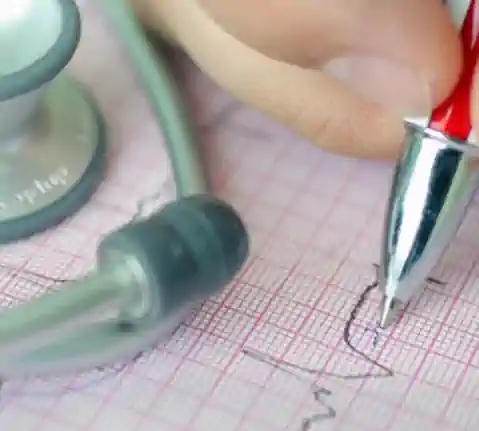Medical Certificate

- Medical certificates aeromedically qualify aviation professionals to conduct their roles in the aviation system safely
- Pilots must therefore meet medical certificate class requirements
- Pilots must then apply for/renew a medical certificate on a prescribed interval, based on the duration of medical certificate validity
- All pilots must meet medical certificate standards, and with some exceptions, possess a valid medical certificate to exercise the privileges of their airman certificates
- Initial, and periodic medical examinations thereafter, are conducted by designated Aviation Medical Examiners, who are physicians with a special interest in aviation safety and training in aviation medicine
- Anyone who meets the medical standards in this part (part 67) based on medical examination and evaluation of the person's history and condition is entitled to an appropriate medical certificate
- For certain pilots who qualify, relief from medical requirements is available through the BasicMed program
- While not subject to the medical certificate process, even Small Unmanned Aircraft Systems must be mindful of any medical considerations
- Think you've got a solid understanding of medical certificate? Don't miss the medical certificate quiz below, and topic summary
WARNING:
All aeromedical topics are GENERALIZED.
Always consult with a doctor or physician to understand your specific situation
Medical Certificate Class Requirements:
First-Class Medical Certificate:
- A first-class medical certificate is required when exercising the privileges of an airline transport pilot certificate;
- If that person has reached his or her 60th birthday and serves as a pilot in 14 Code of Federal Regulations (CFR) part 121 operations
- Notwithstanding the provisions of Sec. 61.23(d)(1)(iii), that person's first-class medical certificate expires, for 14 CFR part 121 operations, at the end of the last day of the 6th month after the month of the date of examination shown on the medical certificate
Second-Class Medical Certificate:
- A second-class medical certificate is required when exercising the privileges of a commercial certificate
- Flight instruction medical requirements comes with additional nuance, explained below
Third-Class Medical Certificate:
- A third-class medical certificate is required:
- When exercising the privileges of a private pilot certificate;
- When exercising the privileges of a recreational pilot certificate;
- When exercising the privileges of a student pilot certificate;
- When exercising the privileges of a flight instructor certificate and acting as the pilot in command;
- When exercising the privileges of a flight instructor certificate and serving as a required pilot flight crewmember;
- Note that a flight instructor may not be considered as acting as the PIC nor a required crewmember if the student is appropriately rated, meaning in that instance, a medical certificate is not required
Medical Certificate Application:
- To apply for a medical, you must schedule an appointment with an Aviation Medical Examiner (AME) and been examined per Part 183
- An applicant may search for an AME online or by contacting the Manager of the Aerospace Medical Education Division, P.O. Box 26200, Oklahoma City, Oklahoma 73125
- Before your appointment with your AME, go online to FAA MedXPress at https://medxpress.faa.gov/ and electronically complete FAA Form 8500-8
- Information entered into MedXPress will be available to your AME to review before and at the time of your medical examination, if you provide a confirmation number
- If an applicant does not have government-issued identification, he or she may use non-photo, government-issued identification (such as a birth certificate or voter registration card) in conjunction with photo identification (such as a work identification card or a student identification card)
Duration of a Medical Certificate:
No matter how long you have a medical certificate, it never changes class, but the privileges which you can execute your license may
First-Class Medical Certificate Duration:
- 40 or older: 6th month after the month of the date of examination shown on the medical certificate before you can only execute the privileges of a Second-Class for the remaining six-months and then drop to the privileges of a Third-Class
- Under 40: 12th month after the month of the date of examination shown on the medical certificate before you can only execute the privileges of a Third-Class
Second-Class Medical Certificate Duration:
- Valid for the same as a third-class (see above); however, you can only execute the privileges of a Second Class for 12 months after the month of the date of the examination shown on the medical certificate
Third-Class Medical Certificate Duration:
- 40 or older: 24th month after the month of the date of examination shown on the medical certificate (2 years)
- Note that a medical exam taken before 40 is good for 60 months, even if taken at age 39
- It is not until the pilot takes an exam at or greater than than 40 that the 24 month limitation applies
Medical Certificate Standards:
Distant Vision:
- 20/20 or better in each eye separately, with or without correction (First/Second)
- 20/40 or better in each eye separately, with or without correction (Third)
Near Vision:
- 20/40 or better in each eye separately (Snellen equivalent), with or without correction, as measured at 16 inches
Color Vision:
- Ability to perceive those colors necessary for the safe performance of airman duties
Hearing:
- Demonstrate hearing of an average conversational voice in a quiet room, using both ears at 6 feet, with the back turned to the examiner or pass one of the audiometric tests below
Audiology:
- Audiometric speech discrimination test: Score at least 70% reception in one ear.Pure tone audiometric test. Unaided, with thresholds no worse than:


